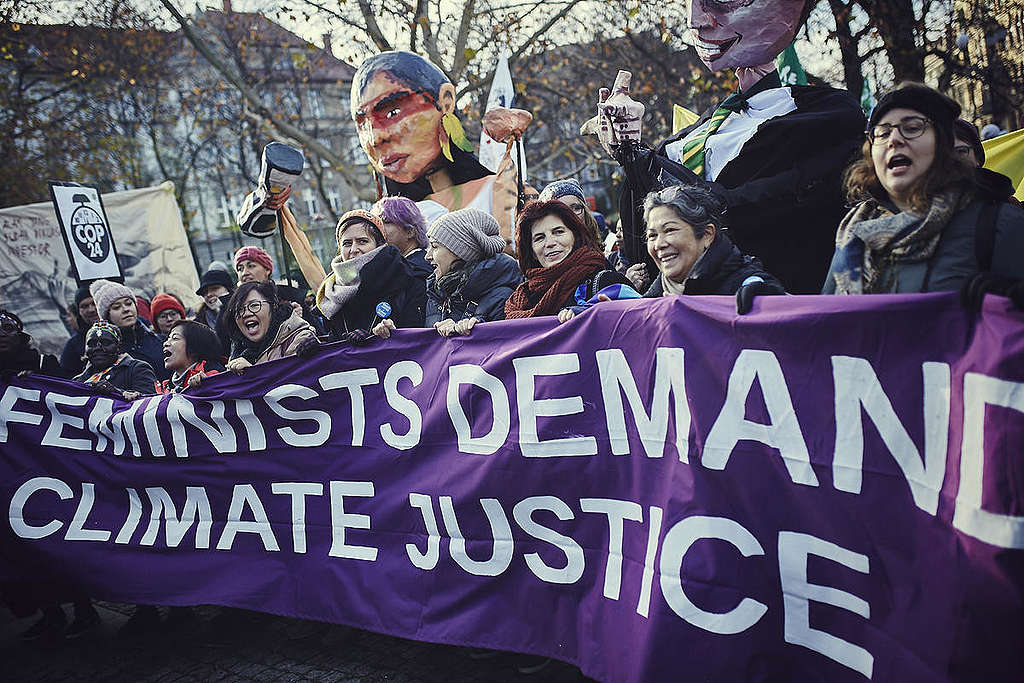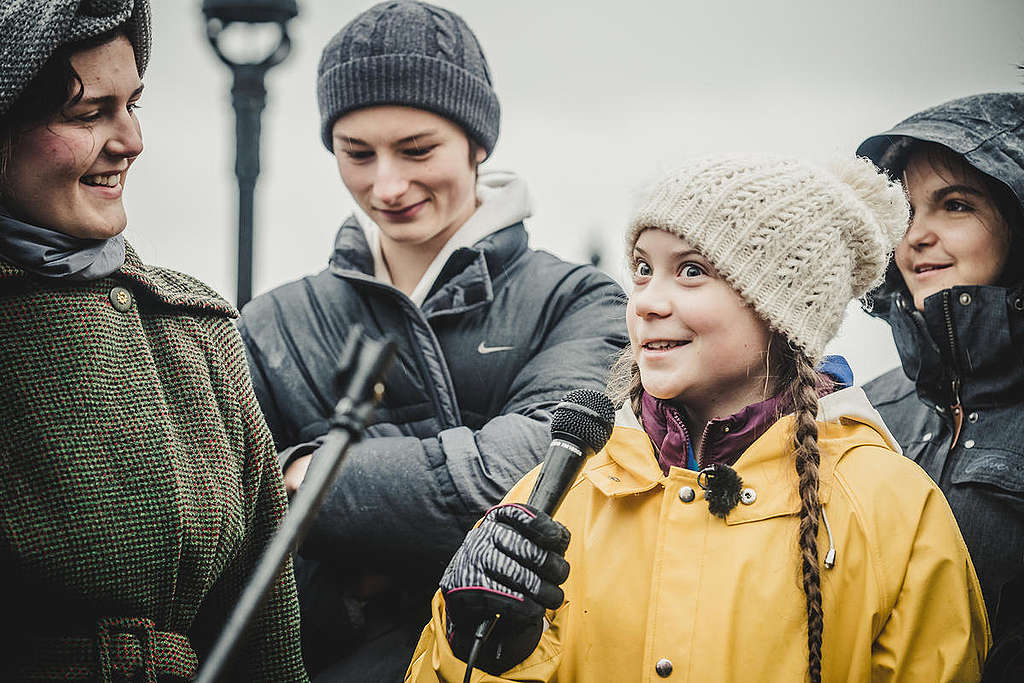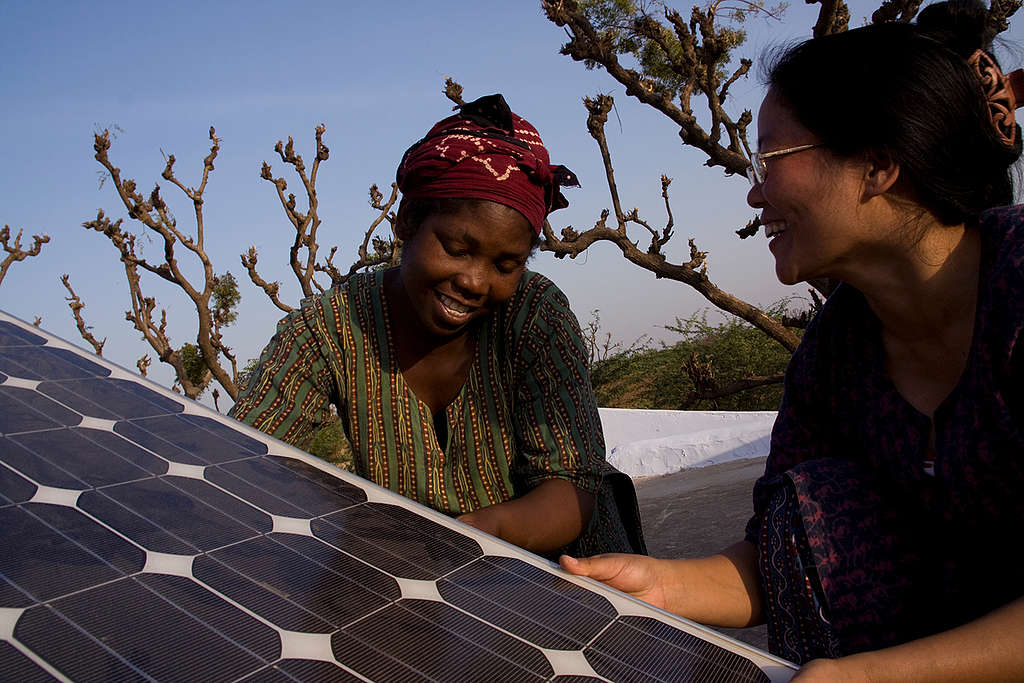Today is Gender Day at the global climate talks, a day dedicated to gender discussions which has been held at every international climate conference for the past seven years.

Several thousand people march in the climate march at COP24 in Katowice, Poland.
Climate change has a greater impact on those parts of the population that depend the most on natural resources for their livelihoods and who have the least capacity to respond to environmental disasters.
Women face higher risks and greater burdens from the impacts of climate change in situations of poverty – the majority of the world’s poor are women. Women’s unequal participation in decision-making processes increases inequalities and often prevents women from fully contributing to climate-related planning, policy-making and implementation.
A fair inclusive society is crucial to avert climate catastrophe. This gender-dedicated day at the global climate talks is particularly important for us all, as it gives us the chance to remind governments that to avert climate catastrophe we need an energy transition model based on fair and transformative policies that take into consideration every member of society.
A gender perspective and effective female participation are essential to build a new energy model and to create better structured societies with equal opportunities for everyone. Women are not passive victims of this crisis. Everywhere we see examples of women standing up for their right to a clean environment.

Greta Thunberg, 15, on a weekly school strike outside the parliament in Stockholm
Last year, a Gender Action Plan was approved at the climate negotiations under Fiji’s presidency. This is a good first step and the inclusion of such an approach in the climate negotiations is finally underway. At this year’s COP24 there are many events and activities highlighting action in support of that plan.
To avoid the worst impacts of climate change, we need a fully renewable system, together with a fair and transformative energy transition that allows citizens to participate in the transition by producing, storing, selling and managing their own renewable energy.
No energy transition can be fair if it does not include over half the world’s population. A fair transition not only has to do with jobs, but also with equality, democracy, a clean environment and the future well-being of communities.

Women studying solar solutions in India
Women play a key role in response to climate change thanks to our knowledge of and leadership in sustainable resource management, and leading sustainable practices in the home and at a community level. Women’s participation at a political level has resulted in greater responsiveness to citizen’s needs, often increasing cooperation across party and ethnic lines and delivering more sustainable peace.
Feminism and environmentalism go hand in hand. Together, they provide a way out of the current global crisis.
Ana Arias and Mónica Parrilla are members of the Greenpeace Spain Gender Team, and Tatiana Nuño is Climate Campaigner at Greenpeace Spain.
